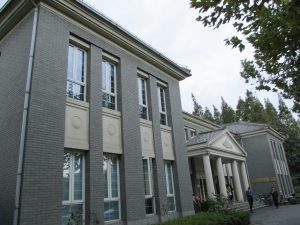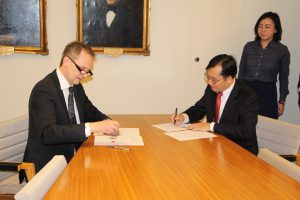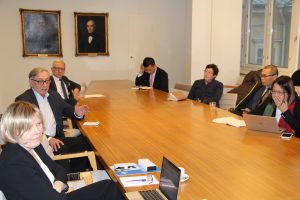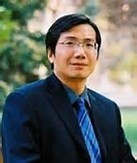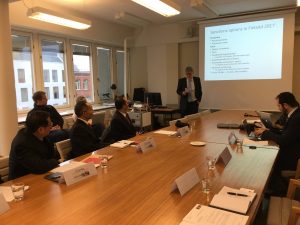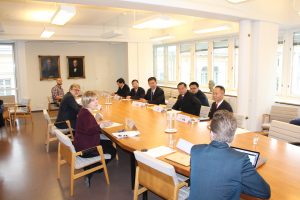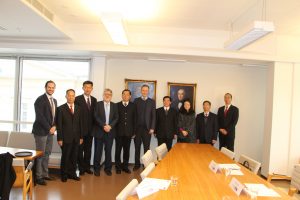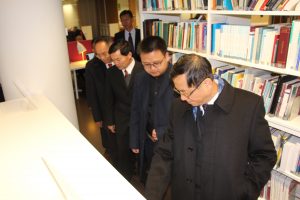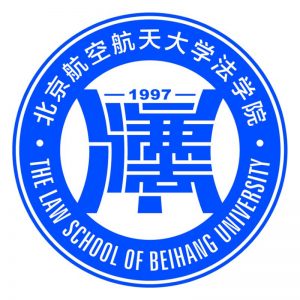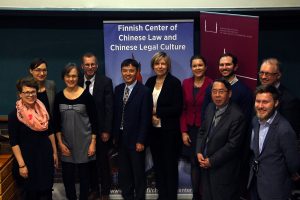China’s new Food Safety Law was issued in 2009 and revised in 2015. For Post-Doctoral Researcher Harriet Lonka, the chance to be a visiting scholar at Peking University Law School and research this important legislative reform was an opportunity not to be missed.
Dr Harriet Lonka, from Finnish China Law Center member institution the University of Eastern Finland (UEF), was a visiting Post-Doctoral Researcher at Peking University from 1 October to 17 November 2017.
The highly respected Peking University is a key strategic partner of the Finnish Center of Chinese Law and Chinese Legal Culture, as detailed in the recently published Report on the First Four Years of the Center.
‘My research in China focused on the new Chinese Food Safety Law. This legislation is an important milestone in China’s legislative reforms and also a key issue concerning trade policy and China’s relations with its international trade partners, especially the WTO’.
During her time in Peking University Law School, Dr Lonka worked closely with Chinese legal scholar Professor Chen Yifeng.
Professor Chen is also a Docent at the University of Helsinki and played a key role in establishing and growing the Finnish China Law Center.
Dr Lonka has a long background in the field of risk management studies, and during her PhD studies she studied the Finnish government’s Security Strategy work and how it effects the shaping of legislation.
‘Chinese Food Safety legislation is comparable in its target and format to the risk regulation tradition in Europe and in Finland’, Dr Lonka says.
‘In my current research, I focus on the aspects of the implementation of the law that have been identified as potential ‘Achilles heels’ of enforcement of the Food Safety Law in China’.
Dr Lonka believes that there are new and interesting challenges in applying measures of risk surveillance, risk management and risk communication at different levels of administration in China.
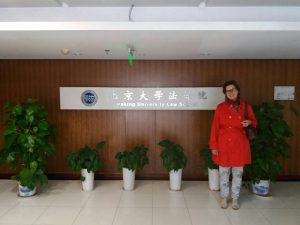
Given the angle of her research, she envisages many more opportunities for fruitful research cooperation with Chinese colleagues in the future.
Dr Lonka’s research was also supported by the fact that she had contacts to the local level administration and foodstuff producers in Hunan Province, which enabled useful data collection in the field.
The opportunity to conduct research not only in Beijing, but also in Hunan Province, was beneficial in many respects, Dr Lonka says.
‘My study visit provided me a lot of important background knowledge and new understanding of Chinese legislation, how it is created and implemented. This is of great interest to me as my own research field is legislative studies. Legislative studies concentrate on how laws are drafted and implemented and what defines their effect’.
One area of particular interest to Dr Lonka is the question of ‘decentralized development’ in China.
‘I would wish to better understand the structures and mechanisms for guidance and supervision from the central government level to provinces and further to the local level in China’.
‘The study of Chinese Food Safety Law provides an excellent case study to scrutinize these phenomena. I think this research focus can help us in general better understand the ‘many faces of China’ and how that effects the legislative processes and implementation of the administrative laws in the country’.
Dr Lonka is grateful for financial support from the Finnish China Law Center and the Saastamoinen Foundation, and for the support of her Finnish supervisors: Professor Ulla Liukkunen from the University of Helsinki / Finnish China Law Center, and Professors Anssi Keinänen and Katja Lindroos from UEF.


